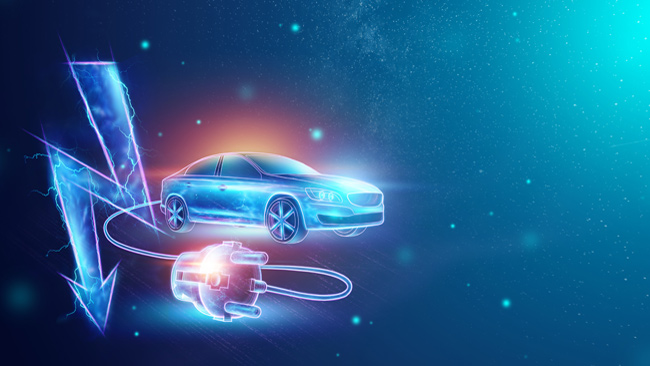The automotive industry has seen a significant shift in recent years, with advancements in technology driving innovation and shaping the future of cars. From self-driving cars to electric vehicles, the industry has seen a tremendous transformation, and the pace of change is accelerating. In this blog post, we’ll explore some of the trends and innovations that are driving the industry forward and what it means for the future of car tech.
The Rise of Electric Vehicles
One of the most significant trends driving the automotive industry forward is the rise of electric vehicles (EVs). With the push towards sustainable energy, EVs have become increasingly popular, with many automakers investing in the technology to meet the growing demand. Kia has been at the forefront of this movement, with their Kia Niro model featuring a hybrid engine that combines electric and petrol power.
In addition to technological advancements, tax incentives have played a key role in promoting EV adoption. Governments are offering tax credits for purchasing electric vehicles, making them more affordable for consumers. Programs like the federal EV tax credit can reduce the cost of eligible vehicles by up to $7,500, providing a financial boost for those looking to make the switch to sustainable transportation. Tax tools such as this free tax calculator can be very helpful at estimating the overall benefit these tax deductions can have on an individual’s tax obligation.
Hyundai has also been investing heavily in the development of electric vehicles. The Ioniq 6 is a midsize electric sedan that will feature advanced technology, including fast charging capabilities and an all-electric powertrain with a range of up to 300 miles on a single charge. As more and more automakers invest in the development of electric vehicles, the release of the Ioniq 6 is a significant step forward in the transition towards sustainable transportation.
The Advent of Self-Driving Cars
Self-driving cars are another major trend driving the automotive industry forward. With the promise of increased safety and convenience, many automakers are investing in this technology to create autonomous vehicles. While the technology is still in its early stages, self-driving cars are expected to revolutionize the way we travel.
Honda has already started testing self-driving cars, with their Honda Legend model featuring Level 3 autonomous driving capabilities. The Honda Legend is capable of driving itself on highways under certain conditions, making it a significant step towards fully autonomous vehicles. As the technology continues to develop, we can expect to see more automakers investing in self-driving cars and creating safer, more convenient driving experiences for consumers.
The Emergence of Car Subscription Services
Car subscription services are emerging as a new trend in the automotive industry, offering drivers more flexibility and convenience.
Car subscription services allow drivers to pay a monthly fee for access to a range of vehicles, with the ability to switch cars whenever they want. This model has become popular with younger drivers who want the freedom to switch between different cars depending on their needs.
The Impact of Artificial Intelligence
Artificial intelligence (AI) is transforming the automotive industry, with many automakers using this technology to create smarter, more efficient vehicles. From predictive maintenance to enhanced safety features, AI is changing the way we drive.
Honda has already started using AI in their vehicles, with the Honda Sensing system featuring advanced safety technologies like collision mitigation braking, lane departure warning, and adaptive cruise control. As technology continues to develop, we can expect to see more automakers investing in AI and creating vehicles that are safer and more efficient than ever before.
The Future of Car Tech: What to Expect
As the automotive industry continues to evolve, we can expect to see even more advancements in car tech. From electric and autonomous vehicles to subscription services and AI, the future of cars is looking exciting.
In the coming years, we can expect to see more automakers investing in electric vehicles, with more models like the Honda HR-V hybrid hitting the market. Self-driving cars will become more common, offering consumers a safer and more convenient driving experience. Car subscription services will continue to gain popularity, giving drivers more flexibility and convenience.
As technology continues to advance, we can expect to see more innovation in the automotive industry. Whether it’s through new features or entirely new vehicles, the future of car tech is sure to be full of surprises.
The Challenges Ahead
While the future of car tech is exciting, it also poses several challenges for the automotive industry. One of the most significant challenges is the cost of new technology, which can make it difficult for automakers to create affordable vehicles for consumers. This challenge is especially prevalent in electric and self-driving vehicles, which require expensive components and software.
Another challenge facing the industry is the need to address concerns around cybersecurity. As cars become more connected, they also become more vulnerable to cyber-attacks, which could compromise the safety and privacy of drivers. Automakers must invest in cybersecurity measures to protect their vehicles from potential threats.
Finally, the shift towards electric vehicles also poses challenges around infrastructure, such as the availability of charging stations. As more consumers switch to EVs, there is a growing need for more charging stations to be built, which requires significant investment and coordination from both automakers and government entities.
Conclusion
In conclusion, the future of car tech is full of exciting trends and innovations, from electric and autonomous vehicles to car subscription services and AI.
As the automotive industry continues to evolve, there will be challenges to overcome, such as the cost of new technology, cybersecurity concerns, and infrastructure needs. However, with continued investment and innovation, the future of cars looks bright, and we can expect to see even more exciting developments in the years to come. Whether you’re interested in car leasing or buying a new vehicle outright, the future of car tech has something for everyone.




Leave a comment
Have something to say about this article? Add your comment and start the discussion.